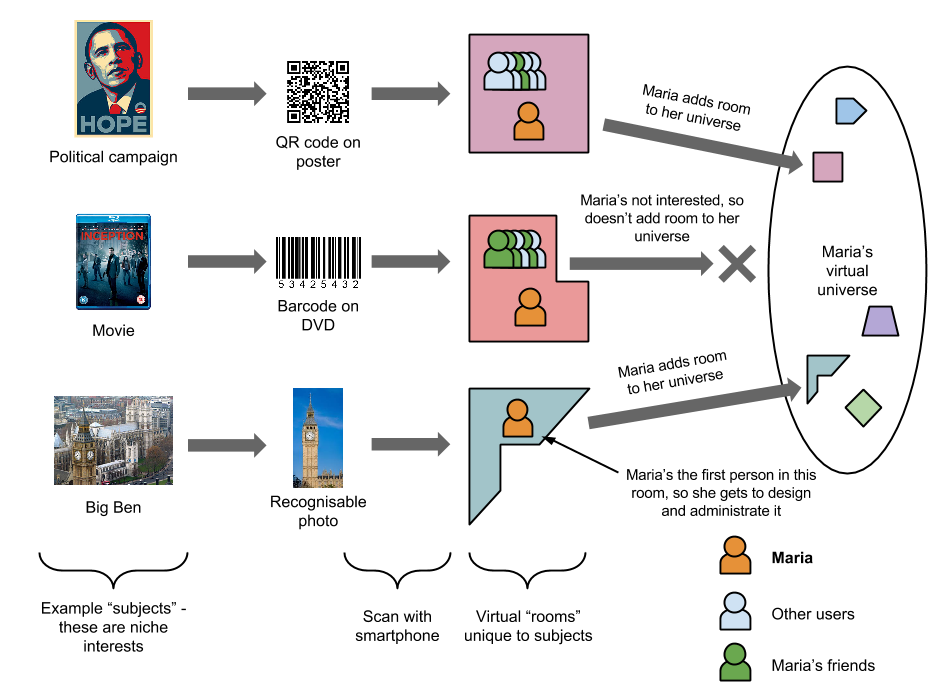
In the last post, we explained that we were making a major change to our idea, from gaming, to a virtual world social network. The virtual world would encourage people of similar interests, who may not know each other, to socialise. This post will offer a brief proposal of how this will work.
The innovative aspect of our virtual world is the way in which people are able to access the virtual world. We will recycle existing symbols – such as barcodes and QR-codes – to act as “portals” to the virtual world. These symbols may be scanned with a mobile device, at which point the user will be taken to a part of the virtual world relevant to what they’ve scanned.
The virtual world consists of “rooms” – each symbol has its own room, and each room has a theme related to the subject (e.g. a product) that the symbol represents. For example, if a person was to scan a QR-code they found on a poster, they would be taken to a room for that QR-code. The room would be occupied by everyone else who has scanned that same QR-code.
To illustrate how this process may work, consider the three scenarios below:
In each case, once a person has entered a room, they may add them to their own “personal universe” such that they can later access them. They may also form friendships with people they meet in rooms, such that they can continue discussions on common interests.

Creating these scenarios has formed an outline of what functionality we expect from this social network. The next stage will be to continue background research and analysis into existing social networks, focusing specifically virtual worlds.